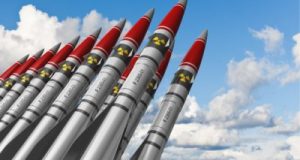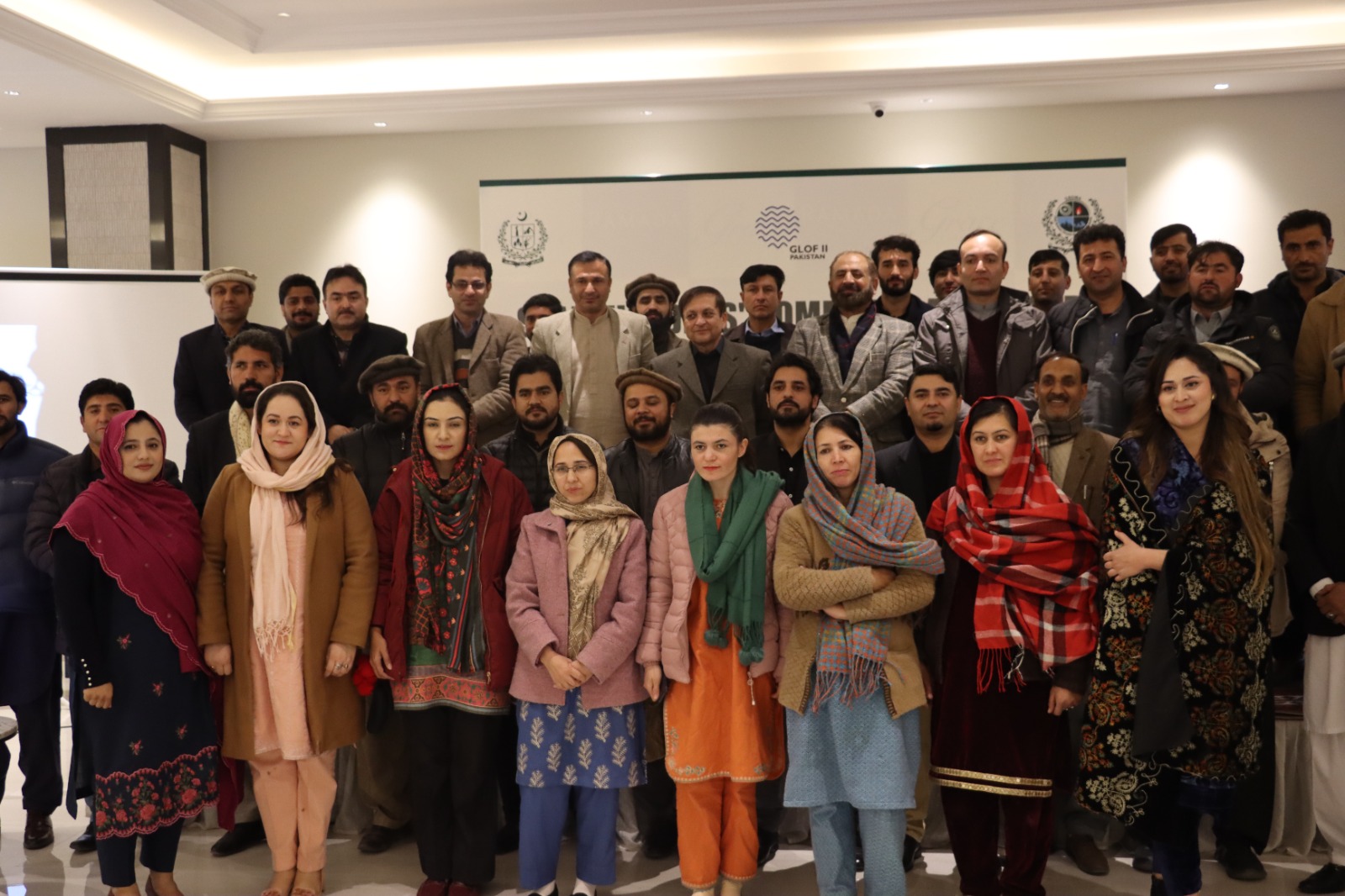By: Jalal Ud Din
Pakistan, with its 1,046-kilometer-long coastline along the Arabian Sea, has enormous potential for the growth of its blue economy. The blue economy includes a diverse variety of industries that rely on marine resources and activities, such as fisheries, aquaculture, maritime transportation, renewable energy, tourism, and ecosystem services. The blue economy offers Pakistan a huge potential to diversify its economy, eliminate poverty, and achieve long-term growth. Pakistan’s coastal and marine resources are abundant and diversified, sustaining a vast range of marine habitats, animals, and natural resources. However, due to a lack of knowledge, poor infrastructure, and the problems involved with sustainable resource management, the full potential of these resources has yet to be realized.
By mapping Pakistan’s blue economy and providing insights into its key sectors, resources, and growth areas, this essay seeks to map Pakistan’s blue economy by identifying key sectors, assessing available resources, and highlighting potential growth areas.
The key sectors within Pakistan’s blue economy is discussed individually, highlighting its current status, contributions to the national economy, existing challenges, and potential for growth.
Fisheries:This industry is critical to Pakistan’s blue economy, contributing significantly to food security, job creation, and export revenues. Pakistan’s coastal waters are teeming with varied fish species, fueling a thriving fishing sector. However, the industry confronts a number of issues, including overfishing, illicit fishing practices, insufficient infrastructure, and minimal value addition. Improved fisheries management, sustainable practices, and value chain development can harness the sector’s potential for growth and economic diversification.
Aquaculture: Aquaculture, the farming of aquatic organisms, presents substantial opportunities for Pakistan’s blue economy. It provides an alternative to wild-caught fish and contributes to domestic fish production. The sector is currently in its early stages of development, but efforts are underway to promote commercial aquaculture and develop sustainable farming practices. Challenges include limited access to finance, technical know-how, and market development. With supportive policies, investments in research and development, and capacity building, aquaculture can emerge as a significant contributor to food security and economic growth.
Maritime Transportation: Maritime transportation is a critical sector within Pakistan’s blue economy, facilitating international trade, connecting coastal communities, and providing employment opportunities. Ports such as Karachi, Gwadar, and Port Qasim play a vital role in handling cargo and facilitating regional connectivity. However, the sector faces challenges related to infrastructure limitations, inadequate port facilities, and inefficient logistics. Investments in port infrastructure development, improved connectivity, and streamlined processes can enhance the sector’s competitiveness, expand trade networks, and stimulate economic growth.
Offshore Oil and Gas Exploration: Pakistan’s offshore areas hold potential for oil and gas exploration, making it a significant sector within the blue economy. Exploration activities have led to the discovery of hydrocarbon reserves, contributing to domestic energy supply and attracting foreign investment. Challenges include technical complexities, high exploration costs, and regulatory frameworks. The sector’s growth potential lies in continued exploration activities, technological advancements, and effective resource management to ensure sustainable extraction and utilization of offshore resources.
Renewable Energy: Renewable energy, including wind, tidal, and solar power, offers immense potential for Pakistan’s blue economy. The country’s coastal areas possess favorable conditions for wind and tidal energy generation, while solar power can be harnessed throughout the coastline. Renewable energy contributes to reducing greenhouse gas emissions, enhancing energy security, and promoting sustainable development. Challenges include high upfront costs, grid integration, and policy and regulatory frameworks. Investment in renewable energy infrastructure, research and development, and supportive policies can accelerate the sector’s growth and facilitate a transition towards clean energy sources.
Coastal and Marine Tourism: Coastal and marine tourism is a rapidly growing sector in Pakistan’s blue economy, attracting domestic and international visitors to its scenic beaches, coral reefs, and diverse marine ecosystems. The sector contributes to job creation, revenue generation, and community development. However, challenges such as inadequate tourism infrastructure, pollution, and limited promotion hinder its full potential. Investments in tourism infrastructure, sustainable tourism practices, and marketing efforts can boost the sector, creating employment opportunities and fostering economic growth while preserving the coastal and marine environment.
Ecosystem Services: Ecosystem services, including coastal protection, carbon sequestration, and biodiversity conservation, are essential components of Pakistan’s blue economy. Coastal ecosystems, such as mangroves, sea grasses, and coral reefs, provide invaluable services by protecting coastlines from erosion, mitigating climate change impacts, and supporting diverse marine life. Challenges include habitat degradation, pollution, and unsustainable practices. Conservation and restoration efforts, integrated coastal zone management, and awareness campaigns are crucial to preserving these ecosystem services and ensuring the long-term sustainability of Pakistan’s blue economy.
By identifying potential growth areas within Pakistan’s blue economy and analyzing emerging trends, technological advancements, and market opportunities Pakistan can drive sustainable economic growth.
Expansion of Sustainable Fisheries and Aquaculture: Pakistan’s fisheries and aquaculture sectors have significant growth potential. The adoption of sustainable fishing practices, value chain development, and investment in aquaculture infrastructure can increase domestic fish production, reduce dependence on imports, and tap into international markets. Growing consumer demand for sustainable seafood presents an opportunity to enhance export earnings and create employment opportunities within these sectors.
Blue Biotechnology and Marine Pharmaceuticals: The exploration of Pakistan’s marine biodiversity and the application of biotechnology in the pharmaceutical industry offer promising avenues for growth. Bioactive compounds derived from marine organisms can be used in drug development, cosmetics, and nutraceuticals. Investment in research and development, collaboration between academia and industry, and the establishment of biotechnology parks can drive innovation and create a niche market for marine-based pharmaceutical products.
Offshore Renewable Energy Development: Pakistan’s coastal areas have favorable conditions for offshore renewable energy generation, particularly wind and tidal power. Expanding the deployment of offshore wind farms and tidal energy projects can contribute to clean energy production, reduce greenhouse gas emissions, and enhance energy security. Technological advancements in offshore wind turbines and grid integration, along with supportive policies and attractive investment opportunities, can drive the growth of this sector.
Sustainable Coastal and Marine Tourism: Pakistan’s coastal regions offer untapped potential for sustainable coastal and marine tourism. With improved tourism infrastructure, enhanced visitor experiences, and conservation measures, the sector can attract domestic and international tourists seeking unique natural and cultural experiences. Developing ecotourism initiatives, promoting marine protected areas, and supporting community-based tourism can drive economic growth, create employment, and raise environmental awareness.
Blue Carbon and Climate Change Mitigation: Coastal ecosystems, such as mangroves and sea grasses, play a crucial role in carbon sequestration and climate change mitigation. Investing in the conservation and restoration of these ecosystems, along with the implementation of blue carbon projects, can generate carbon credits and contribute to climate change mitigation efforts. International initiatives and funding mechanisms aimed at reducing emissions from deforestation and degradation can provide opportunities for sustainable economic growth.
Marine Biotechnology and Aquaculture Feed Production: The utilization of marine biotechnology in the production of sustainable aquaculture feeds presents a growth area within Pakistan’s blue economy. Developing feed formulations using marine-derived ingredients can enhance the nutritional value of aquaculture products, reduce dependence on conventional fishmeal, and improve feed efficiency. Research collaborations, technological advancements, and investment in feed production facilities can drive innovation and support the growth of the aquaculture sector.
Deep-Sea Mining and Minerals Exploration: Exploration and extraction of mineral resources from deep-sea areas offer potential growth opportunities. Pakistan’s offshore regions may contain deposits of valuable minerals such as polymetallic nodules, manganese, and rare-earth elements. Technological advancements in deep-sea mining techniques, international collaborations, and supportive regulatory frameworks can unlock the economic potential of deep-sea mining while ensuring environmental sustainability.
To promote the sustainable development of Pakistan’s blue economy, the following policy recommendations are proposed. These recommendations aim to address challenges, promote investment, enhance regulatory frameworks, foster public-private partnerships, and ensure environmental conservation:
Strengthening Fisheries Management:
Implement science-based fisheries management strategies, including the establishment of catch limits, gear restrictions, and closed seasons to prevent overfishing and ensure the long-term sustainability of fish stocks.
Enhance surveillance and enforcement mechanisms to combat illegal, unreported, and unregulated fishing practices.
Promote capacity building and training programs for fishers on sustainable fishing practices, resource conservation, and value chain development.
Supporting Aquaculture Development:
Develop a comprehensive aquaculture policy framework, including streamlined procedures for licensing and access to finance, to encourage investment in sustainable aquaculture ventures.
Establish aquaculture research and development centers to support innovation, improve farming techniques, and promote the use of eco-friendly feed formulations.
Facilitate market linkages and value chain development for aquaculture products through public-private partnerships and targeted marketing initiatives.
Improving Maritime Infrastructure:
Invest in the development and expansion of port infrastructure, including container terminals, shipyards, and logistics facilities, to enhance the efficiency and competitiveness of maritime transportation.
Upgrade coastal and inland transportation networks to improve connectivity and facilitate the movement of goods and services.
Foster public-private partnerships to attract private investment in maritime infrastructure projects and leverage expertise for effective management.
Promoting Renewable Energy Investments:
Develop a comprehensive policy framework to incentivize renewable energy investments, including offshore wind and tidal energy projects, through tax benefits, feed-in tariffs, and favorable regulatory frameworks.
Facilitate public-private partnerships for the development of renewable energy infrastructure and explore innovative financing mechanisms to attract domestic and foreign investments.
Strengthen grid infrastructure and ensure integration of renewable energy sources into the national grid.
Sustainable Coastal and Marine Tourism:
Develop and implement sustainable tourism guidelines and certification programs to ensure responsible tourism practices, environmental conservation, and the preservation of cultural heritage.
Enhance tourism infrastructure, including accommodation, transportation, and recreational facilities, while ensuring their compatibility with coastal and marine ecosystems.
Establish public-private partnerships to promote tourism investment, marketing, and capacity building initiatives.
Strengthening Regulatory Frameworks:
Review and update existing laws and regulations related to the blue economy to align with international best practices, promote sustainable practices, and ensure effective governance.
Enhance coordination and cooperation among relevant government agencies, research institutions, and stakeholders to ensure integrated management and regulation of the blue economy.
Establish monitoring and enforcement mechanisms to ensure compliance with regulations and address illegal activities, including overfishing, pollution, and habitat destruction.
Conservation and Environmental Management:
Strengthen the protection and conservation of coastal and marine ecosystems through the establishment and effective management of marine protected areas, including coral reefs, mangroves, and seagrass beds.
Promote environmental impact assessments for coastal development projects to ensure sustainable practices and mitigate adverse ecological effects.
Support research and monitoring programs to assess the impacts of climate change, ocean acidification, and pollution on marine ecosystems and develop adaptation strategies.
This essay has provided an in-depth analysis of Pakistan’s blue economy, highlighting key sectors, available resources, potential growth areas, and policy recommendations for sustainable development. The findings underscore the immense potential of Pakistan’s blue economy and emphasize the importance of mapping its resources to harness this potential effectively.
Mr. Jalal Ud Din , The writer is a scholar of MS IR in Muslim Youth University Islamabad.
 Daily Mountain Gilgit Baltistan News Website News website of Daily Mountain Gilgit Baltistan
Daily Mountain Gilgit Baltistan News Website News website of Daily Mountain Gilgit Baltistan




